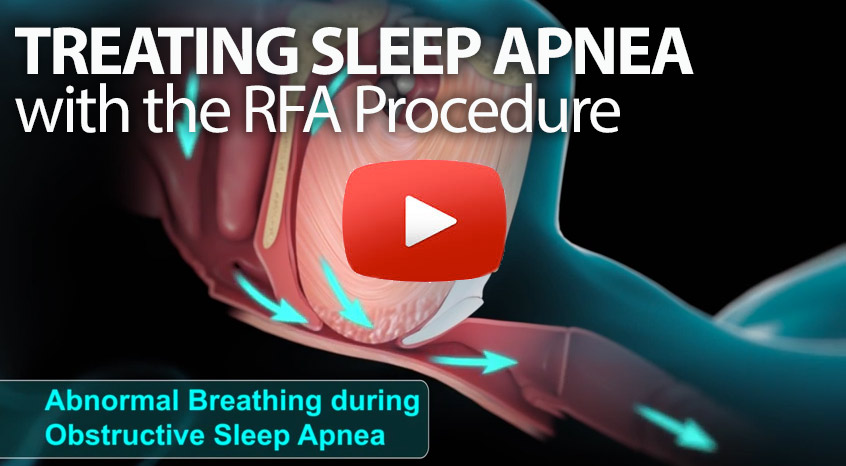Often, people who have sleep apnea don’t know they have it. They’re not aware that their breathing stops and starts many times while they’re sleeping. Family members or bed partners usually are the first to notice signs of sleep apnea.
Family members can do a lot to help a loved one who has sleep apnea, but the four most important are:
- Let the family member know if he or she snores loudly during sleep, or if their breathing stops and starts.
- Encourage them to get medical help.
- Help them follow the doctor’s treatment plan, including CPAP treatment, RFA, or other viable treatment option.
- Provide emotional support.
It’s critical that people suffering from sleep apnea are made aware of, seek treatment for, and follow through with any treatment recommendation. That is because untreated sleep apnea presents several significant health risks including high blood pressure, heart disease, diabetes, and accidents (while driving).
On the flip side, following an effective treatment plan often can improve their quality of life and yours. Imagine your loved one relieved of daytime sleepiness, having lower blood pressure or heart disease risk, and being more alert at all times – especially while driving on the highway or operating heavy machinery.
Ongoing Health Care Needs
Once a treatment plan has begun, make sure to give your family member regular updates as to whether they are sleeping better. Also, be sure to have them follow up with their doctor regularly to make sure the treatment is working from a diagnostic perspective.
For example, ongoing care is important if they are getting CPAP (continuous positive airway pressure) treatment. It may take a while before they adjust to using CPAP. If they aren’t comfortable with the device, or if it doesn’t seem to be working, make sure they let their doctor know right away. They may need to switch to a different device or mask, or seek a different treatment option like Radio Frequency Ablation (RFA).
Other things to be aware of include:
- Weight gain, which can worsen sleep apnea and require adjustments to a CPAP device.
- Until their sleep apnea is properly treated, make sure they know the dangers of driving or operating heavy machinery while sleepy.
- If they are having any type of surgery that requires medicine to put them to sleep, let the surgeon and doctors know they may have sleep apnea. Knowing this may help the medical team to take extra steps to make sure their airway stays open during the surgery.
If you or someone you know is in need of a better night’s sleep, contact us for a no obligation consultation. We are the sleep specialists at Chevy Chase ENT located in the Virginia, Maryland, and Washington D.C. metro area dealing with sleep apnea and sleep-related problems. We can help diagnose your condition, recommend whether a sleep study would be beneficial, and offer you a variety of treatment options including CPAP, Radio Frequency Ablation (RFA) and more.

